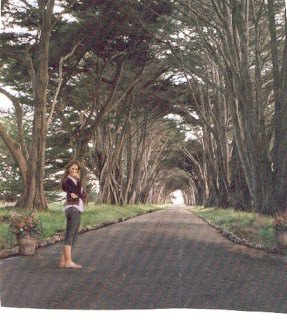 Warning: Long Post!!!
Warning: Long Post!!!(Picture courtesy of the Feebleminds website at http://www.feeblemind-gif.com/)
For years now I've been WARA's resident oddball. I write romance, but I write it in subgenres and categories that aren't the usual. Off-the-wall stuff such as fantasy, futuristic and paranormal romance, erotic romance and fan fiction. Different, huh?
Nina's already talked about the tribulations of writing the "weird stuff" and about the roots and significance of fantasy, futuristic and paranormal fiction. The only thing I would add to her statements is that, for market considerations, an FF&P romance has to have an even balance between the romance and the other genre. All the elements of romance, hero, heroine, sexual tension, and most importantly the HEA, have to be present.
Many novels today are featuring FF&P elements with a strong female protagonist and a heavily romantic subplot. However, to be considered an FF&P romance the emphasis has to remain on the romance aspect of the story. The definition of what constitutes an FF&P romance is fluid, but for most houses the statement I made above is an accurate one.
Which leads me to address my other forms of weirdness. I write erotic romance. Erotic romance, along with chick-lit and women's fiction, garners about 2.9% of the sales in the romance market. Small, but significant.
Erotic romance, like FF&P, has a fluid definition that can vary from house to house. A basic definition of it is a love story imbued with a highly sexual content. There has to be an emphasis on the romance, and it has to be balance with the sexual content. Most erotic romances allow exploration of more controversial elements, such as multiple partners, role-playing, bondage/sadomasochism, etc.
To write erotic romance, sex scenes have to be plotted. They must move the character toward a goal, bring the character into conflict with opposing forces or strengthen or change a character's motivation. You can't just take a story and "sex it up." The sex has to be a part of the character's fictional journey. A good reference work for writing Erotic Romance is The Complete Idiot's Guide to Writing Erotic Romance by Alison Kent. There is also a special interest chapter of The Romance Writer's of America for the erotic romance subgenre called Passionate Ink.
While I have yet to be professionally published in this subgenre, I am gaining experience with it in another fashion. The erotic romance writing I've done has been in the realm of "fan fiction." Fan fiction is writing in the story world of a movie, TV show, book, video game, etc. It cannot be done for profit, only for the love of the characters involved. Like writing everywhere, it runs the gamut from really bad to excellent.
Fan fiction is controversial, and many people do not consider it "real writing" because it is not original work. Some authors and creators don't like it because they feel it infringes on their creation. Despite efforts to curtail it, fan fiction continues and has grown in numbers over the years. Most authors now consider it to be a sincere form of flattery.
Fan fiction is a place where writers can test the waters. It allows a beginning writer to experiment with plot and characters without pressure. They can learn by using settings and characters that are familiar and comfortable. Its main goal is to tell an interesting story and to keep the characters as close to those of the original work as possible. The stories are posted on websites, and other fans of the work are encouraged to give feedback.
For me fan fiction is an opportunity to try out new techniques, like adding sexual elements to a familiar story, and to play. I use it to write about fictional people I've become fond of and to write without the strain of deadlines or editors. If you are interested in this type of writing, check out FanFiction.net at http://www.fanfiction.net/.
I've maundered on enough now. Aren't you all glad I went last? :-)!




